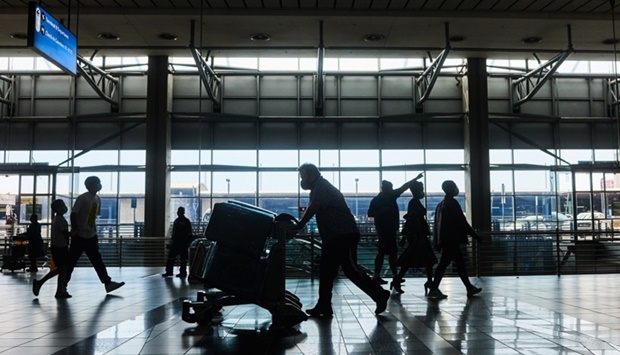| Beyond the Tarmac |
Blocked funds in excess of $1.5bn, mostly in Africa, threaten to slow the recovery of air travel and tourism in affected markets as it struggles to recover from the Covid-19 crisis.
Of the blocked payments, 67% is stuck in some 12 countries in Africa, according to the latest figures released by the International Air Transport Association.
Nigeria is withholding $450mn in payments due to foreign airlines, the biggest amount held by any single African country, and the amount seems to be rising every week.
Other African states withholding funds from foreign carriers include Zimbabwe with $100mn, Algeria ($96mn), Eritrea ($79mn) and Ethiopia ($75mn), recent IATA data reveals.
The blocked funds are mostly from the sale of tickets, cargo space, and other activities.
The global body of airlines has urged governments to work with the aviation industry to resolve the issues that prevent airlines from repatriating their rightful funds.
This, it said will enable aviation to provide the connectivity needed to sustain jobs and to energise economies as they recover from the pandemic.
“Airlines will not be able to provide reliable connectivity if they cannot rely on local revenues to support operations. That is why it is critical for all governments to prioritise ensuring that funds can be repatriated efficiently,” IATA director general Willie Walsh had said earlier.
Last month, during the IATA AGM in Doha, the association’s regional chief Kamil al-Awadhi said he had held two rounds of discussions with the Nigerian authorities, including the country's central bank, to help to negotiate the release of funds owed to foreign airlines operating in the country.
“The excuse was that 'we don't have hard cash and this is why we can't do it' but you have to note that Nigeria is the biggest economy in Africa and Nigeria is the No 10 country in the world that exports oil,” he said.
“While I was in that meeting with the central bank, they were not responsive to handling the blocked funds and almost said, 'well, tell the airlines not to operate' and this is of course extremely damaging to the aviation industry inside Nigeria and internationally.”
Al-Awadhi said he will be returning to Nigeria “soon” for a third round of discussions to reduce the backlog, but did not say when.
“Hopefully, we can get some sort of solution where it starts going down. It won't, I doubt, be paid in a single shot,” he said.
That said, airline finances improved in all regions in 2021 and are expected to improve further in 2022, with North America leading the way.
IATA’s previous estimates anticipated reduced, widespread operational losses in 2021. The association estimates the same for 2022 across all the main regions of airline registration, although the degree of improvement will vary significantly region by region.
The US-Europe market illustrates that people’s willingness to travel by air has remained strong throughout the pandemic. The easing of air travel restrictions has often been followed by a surge in ticket sales.
Except for countries directly affected by the war in Ukraine, demand has been mostly untouched, with ticket sales falling for only a week or so before recovering. Not even inflation has so far put people off air travel. It is likely, though, that demand would be stronger without these various shocks.
Undoubtedly, aviation is resilient and on the rise. After the worst downturn in its history, the industry has turned the corner on the Covid-19 pandemic.
Industry losses are expected to reduce to $9.7bn in 2022; down from $42.1bn in 2021. That is a huge improvement from losses of $137.7bn in 2020.
In growing numbers and with rising excitement and enthusiasm, people are again enjoying the freedom to travel, to connect with one another, and to see the world.
By the end of 2023, most regions will be at, or exceeding, pre-pandemic levels of demand, industry experts say.
However, ongoing problems with blocked funds are extremely damaging to the airline industry. One of the consequences is that flights to countries with blocked funds cost six or seven times more than comparable flights elsewhere! Clearly, Nigeria is a case in point.
Holding back money belonging to airlines also discourages other carriers from serving the particular market, thereby reducing connectivity and options for passengers.
Blocked remittances have plagued airlines for years, but the situation has been exacerbated by the pandemic that left airlines cash-strapped after two years of weak travel demand.
Therefore, it is critical for governments around the world to prioritise repatriation of blocked funds in the overall interest of the aviation industry, which is a key driver of global economic growth.


